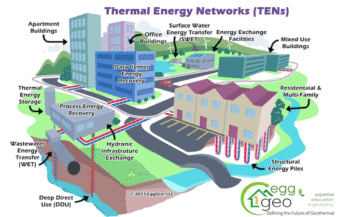Corrosive environments present a formidable challenge in the mechanical manufacturing industry. Whether it’s exposure to saltwater in marine applications, chemicals in processing plants, or high humidity in various industrial settings, corrosion can significantly impact the longevity and performance of mechanical components. Utilizing high-performance solvents can help combat these issues effectively. Understanding the appropriate materials and chemical solutions to mitigate these effects is crucial for maintaining operational efficiency and reducing maintenance costs, ultimately leading to more reliable and durable machinery.
Understanding Corrosive Environments
Corrosion occurs when materials deteriorate due to chemical reactions to their environment. This is particularly problematic in mechanical manufacturing, where metal components are commonplace. The most common types of corrosion include:
- Uniform Corrosion: Occurs evenly across a material’s surface.
- Galvanic Corrosion: Occurs when two different metals are in electrical contact in a corrosive environment.
- Pitting Corrosion: Results in small, localized cavities or pits on the surface.
- Crevice Corrosion: Occurs in confined spaces where stagnant solutions are present.
- Stress Corrosion Cracking (SCC): Caused by the combined effect of tensile stress and a corrosive environment.
Each type of corrosion necessitates specific preventive measures and the selection of suitable materials.
Essential Alloys for Corrosive Environments
One of the most effective ways to combat corrosion is using corrosion-resistant alloys. These materials are designed to withstand harsh environments and maintain structural integrity over time. Key alloys include:
Stainless Steel
Stainless steel is renowned for its corrosion resistance, attributed to its chromium content, which forms a passive oxide layer on the surface. Various grades are available, each with distinct properties:
- 304 Stainless Steel: Offers excellent corrosion resistance and is widely used in industrial applications.
- 316 Stainless Steel: Contains molybdenum, which enhances its resistance to pitting and crevice corrosion, making it suitable for marine environments.
- Duplex Stainless Steel: Combines the properties of austenitic and ferritic stainless steels, providing high strength and improved resistance to stress corrosion cracking.
Nickel Alloys
Nickel alloys are highly resistant to various types of corrosion, including pitting, crevice corrosion, and SCC. Common nickel alloys include:
- Inconel 625: Known for its high strength and excellent corrosion resistance in acidic and alkaline environments.
- Monel 400: Offers good resistance to corrosion in seawater and brackish water.
- Hastelloy C-276: Provides outstanding resistance to various aggressive chemicals, including sulfuric acid and chlorine compounds.
Titanium Alloys
Titanium alloys are lightweight yet exceptionally strong and corrosion-resistant. They are particularly suitable for aerospace and marine applications:
- Grade 2 Titanium: Known for its excellent corrosion resistance in oxidizing and mildly reducing environments.
- Grade 5 Titanium (Ti-6Al-4V): Combines high strength with excellent corrosion resistance, making it ideal for high-performance applications.
Chemical Solutions for Corrosion Prevention
In addition to selecting the right materials, chemical solutions prevent corrosion. High-performance solvents can be applied as coatings, inhibitors, or treatments to protect metal surfaces, ensuring longevity and durability. These solutions not only safeguard your investments but also enhance the overall performance of your projects.
Corrosion Inhibitors
Corrosion inhibitors are chemical compounds that decrease the corrosion rate when added to the environment. They form a protective film on the metal surface or neutralize corrosive agents. Common types include:
- Anodic Inhibitors: Promote the formation of a passive oxide layer on the metal surface.
- Cathodic Inhibitors: Reduce the corrosion rate by decreasing the cathodic reaction.
- Mixed Inhibitors: Combine the properties of anodic and cathodic inhibitors for comprehensive protection.
Protective Coatings
Protective coatings are applied to metal surfaces to create a barrier between the material and the corrosive environment. Types of protective coatings include:
- Paints and Varnishes: Provide a physical barrier that prevents moisture and chemicals from reaching the metal surface.
- Epoxy Coatings: Offer excellent adhesion and durability, making them suitable for harsh industrial environments.
- Galvanization: Involves coating the metal with a layer of zinc, which provides sacrificial protection by corroding preferentially to the underlying metal.
Passivation
Passivation is a chemical treatment process that enhances the natural oxide layer on the surface of stainless steel and other alloys. This protective layer reduces the material’s reactivity and improves its corrosion resistance. Passivation can achieve even better results by effectively using solvents during this process. It is commonly used in industries where cleanliness and corrosion resistance are critical, such as pharmaceuticals and food processing.
Conclusion
Navigating corrosive environments in mechanical manufacturing requires a strategic approach that combines corrosion-resistant materials and effective chemical solutions. By selecting the appropriate alloys and applying the right protective measures, manufacturers can significantly extend the lifespan of their components and ensure reliable performance in even the harshest conditions. For those seeking expert guidance and customized solutions, consulting with industry professionals can further optimize corrosion prevention strategies, ensuring long-term success and operational efficiency.




Join the conversation: